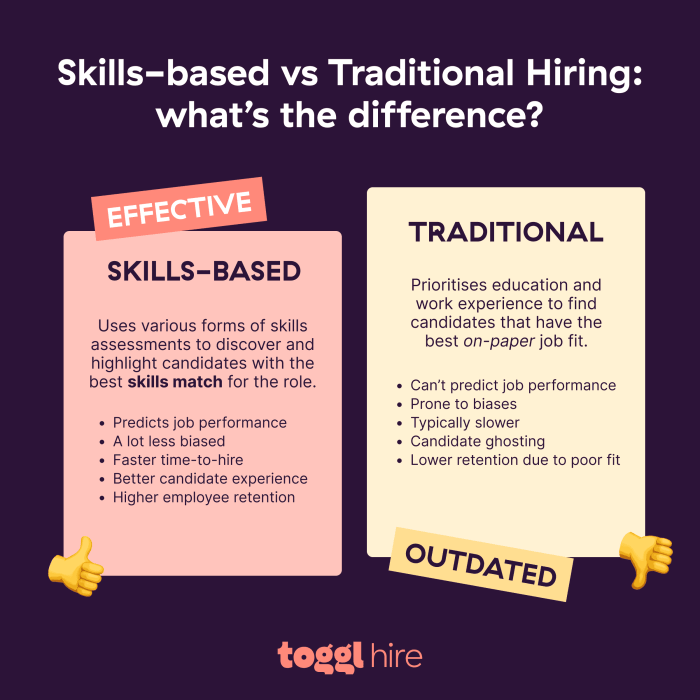Job-based employees are characterized by their specialized roles, requiring specific skills and responsibilities. This article delves into the defining attributes, qualifications, compensation structures, and career advancement opportunities of job-based employees, exploring their unique contributions to organizations and the challenges they face.
Job-based employees play a vital role in the smooth functioning of organizations, contributing their specialized knowledge and expertise to achieve organizational goals.
Job-based Employee Characteristics: Job-based Employees Are Characterized By

Job-based employees are defined by their specific job title and responsibilities, which are Artikeld in a job description. They are typically responsible for performing a set of tasks that are essential to the operation of the organization. These tasks may include:
- Performing specific duties and responsibilities as Artikeld in their job description
- Following company policies and procedures
- Meeting performance expectations
- Working independently and as part of a team
- Maintaining a positive attitude and a strong work ethic
Skills and Qualifications
Job-based employees typically require a specific set of skills and qualifications to perform their job effectively. These may include:
- Technical skills specific to their job role
- Soft skills such as communication, teamwork, and problem-solving
- Education and experience in a relevant field
- Certifications or licenses required for the job
Specialized training and certification can be essential for job-based employees to stay up-to-date on the latest technologies and best practices. This can help them to improve their performance and advance their careers.
Compensation and Benefits
Job-based employees are typically compensated based on their job title, experience, and performance. Their compensation packages may include:
- Salary
- Benefits such as health insurance, paid time off, and retirement plans
- Bonuses or other incentives
The compensation structures of job-based employees can vary widely depending on the industry, company, and job title. They may be paid hourly, salaried, or on a commission basis.
Career Advancement Opportunities, Job-based employees are characterized by
Job-based employees may have opportunities for career advancement within their organization. These opportunities may include:
- Promotions to higher-level positions
- Lateral moves to different departments or job functions
- Opportunities for professional development and training
Common career paths for job-based employees include management, technical leadership, and specialized roles.
Employee Engagement and Motivation
Job-based employees are typically engaged and motivated by the following factors:
- Clear job expectations and performance goals
- Opportunities for growth and development
- Recognition and rewards for their contributions
- A positive work environment
- A sense of purpose and meaning in their work
Strategies for enhancing employee engagement and motivation among job-based employees include:
- Providing regular feedback and recognition
- Offering opportunities for professional development
- Creating a positive and supportive work environment
- Empowering employees to make decisions and take ownership of their work
- Encouraging collaboration and teamwork
Challenges and Limitations
Job-based employment can also present some challenges and limitations, including:
- Limited flexibility and autonomy
- Potential for burnout due to high workload
- Limited opportunities for creativity and innovation
- Repetitive or routine tasks
Strategies for addressing these challenges and mitigating their impact include:
- Providing employees with opportunities to cross-train and develop new skills
- Encouraging employees to take breaks and vacations
- Creating a positive and supportive work environment
- Empowering employees to make decisions and take ownership of their work
FAQ Section
What are the primary characteristics of job-based employees?
Job-based employees are defined by their specialized roles, requiring specific skills, knowledge, and responsibilities to perform their duties effectively.
How do job-based employees differ from other types of employees?
Job-based employees are typically hired for their specialized skills and expertise, while other types of employees may be hired for their general knowledge or abilities.
What are the career advancement opportunities for job-based employees?
Job-based employees can advance their careers by developing their skills and knowledge, taking on additional responsibilities, and seeking promotions within their specialized field.

